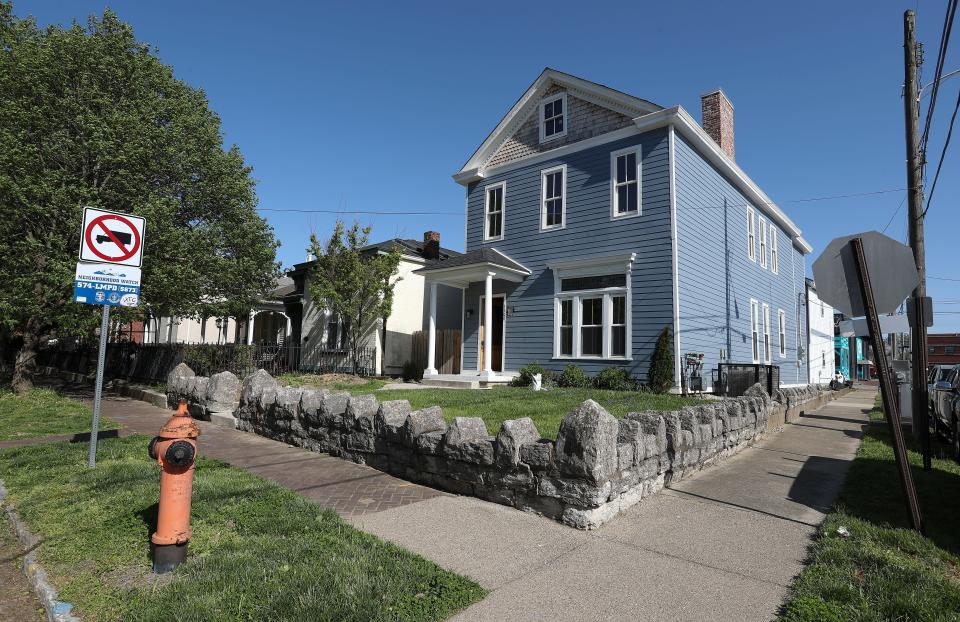Louisville Metro Council changes rules for Airbnbs, other short-term rentals
New restrictions are coming for Louisville's short-term rentals following complaints from residents who say the businesses are harming their neighborhoods.
At a Metro Council meeting on Thursday, members unanimously approved more than a dozen changes to the city's existing regulations, after neighbors voiced concerns about noise, limited parking and absentee hosts as well as the conversion of lower-priced homes into permanent Airbnbs.
"This doesn't get rid of short-term rentals, we're just updating the rules because we all want to have the best neighborhood, but that is impossible if you don't have neighbors," said Councilman Jecorey Arthur, a co-sponsor of the ordinance.
The basic premise of the ordinance is that, "in a place that is your primary place of residence, you should be able to operate with maximum freedom," said Councilman Ben Reno-Weber, also a co-sponsor. "In a place that is not zoned for operating a commercial hotel, you should not be able to operate a commercial hotel."
Changes to the regulations include increased annual registration fees for all rentals, a new maximum occupancy limit for larger properties and tightened requirements for owner-occupied units.
They're scheduled to take effect immediately.
Here's what to know.

How have short-term rentals in Louisville been regulated?
Since 2016, Louisville has required all short-term rentals − often booked through platforms such as Airbnb and VRBO − to register annually with the city, providing information on where they're located and who owns them.
Louisville employees review each short-term rental application before it's registered to make sure it meets zoning, occupancy and other requirements. And code enforcement officers can cite rentals operating without a registration.
Starting in 2019, short-term rentals were also required to receive conditional-use permits if they wanted to operate without a host at residentially zoned properties.
Those rentals are not supposed to be within 600 feet of each other, though the Board of Zoning Adjustment has the power to approve permits with exceptions.
You might like: Want mom closer to home? Why Louisville wants more people to build 'mother-in-law suites'
How are the regulations changing?
Metro Council members directed city planning employees to again review short-term rental regulations in November 2022. And this summer, employees issued a list of 15 recommendations. Now many of them have been approved.
Approved changes include:
Increasing the annual short-term rental registration fee to $250 from $100. (The increase in the fees will go toward creating a position dedicated to short-term rentals, Reno-Weber said.)
Requiring an owner to live at a residence at least six months before registering it as an owner-occupied rental.
Amending language from "host" occupancy to "owner" occupancy, which should keep owners from avoiding the conditional-use permitting process in residential areas.
Limiting the maximum occupancy at short-term rentals to 12 adults (though the Board of Zoning Adjustment could restrict that number further or allow more residents in the unit on a case-by-case basis).
Prohibiting a new registration at a property if a citation has been issued there for unlawful short-term rental activity within the past 12 months.
Disallowing waivers if two or more short-term rentals with conditional-use permits are already located within 600 feet of each other. (There are some exceptions, including a neighborhood plan that supports short-term rentals and if the "property is adjacent to nonresidential zoning districts that allow short-term rentals by right.")
Requiring conditional-use permits for non-owner-occupied rentals at some properties zoned office-residential.
Residents in Phoenix Hill and Shelby Park advocated heavily for the last change, arguing that investors who bought up single-family homes and turned them into permanent Airbnbs were changing the nature of their neighborhoods.
"I just wanted to dedicate my 'yes' vote tonight to District Four residents – Phoenix Hill, Butchertown and Clifton Heights – who sent them written comments, went to public hearings," Arthur said. "They've been watching committee meetings. They organized for changes around short-term rentals, and I'm so proud that we're about to vote to make those changes."
But as time goes on, more conversations concerning short-term rentals may be necessary, said Councilman Andrew Owen.
"This is the third time we've revisited this legislation since we've since it was introduced, and I think that was 2016," Owen said. "So I think we'll probably have to continue to do that as the industry grows and keeps moving."
How many short-term rentals are in Louisville?
According to city data, more than 1,300 short-term rentals are registered in Louisville − though that number is constantly fluctuating.
Most registered rentals are located in and around downtown, as well as in the Clifton, Highlands and Churchill Downs areas.
Reach reporter Bailey Loosemore at bloosemore@courier-journal.com, 502-582-4646 or on Twitter @bloosemore. Reach reporter Eleanor McCrary at EMcCrary@courier-journal.com or on Twitter at @ellie_mccrary.
This article originally appeared on Louisville Courier Journal: Louisville Airbnb, VRBO: Rules changed for short-term rentals

